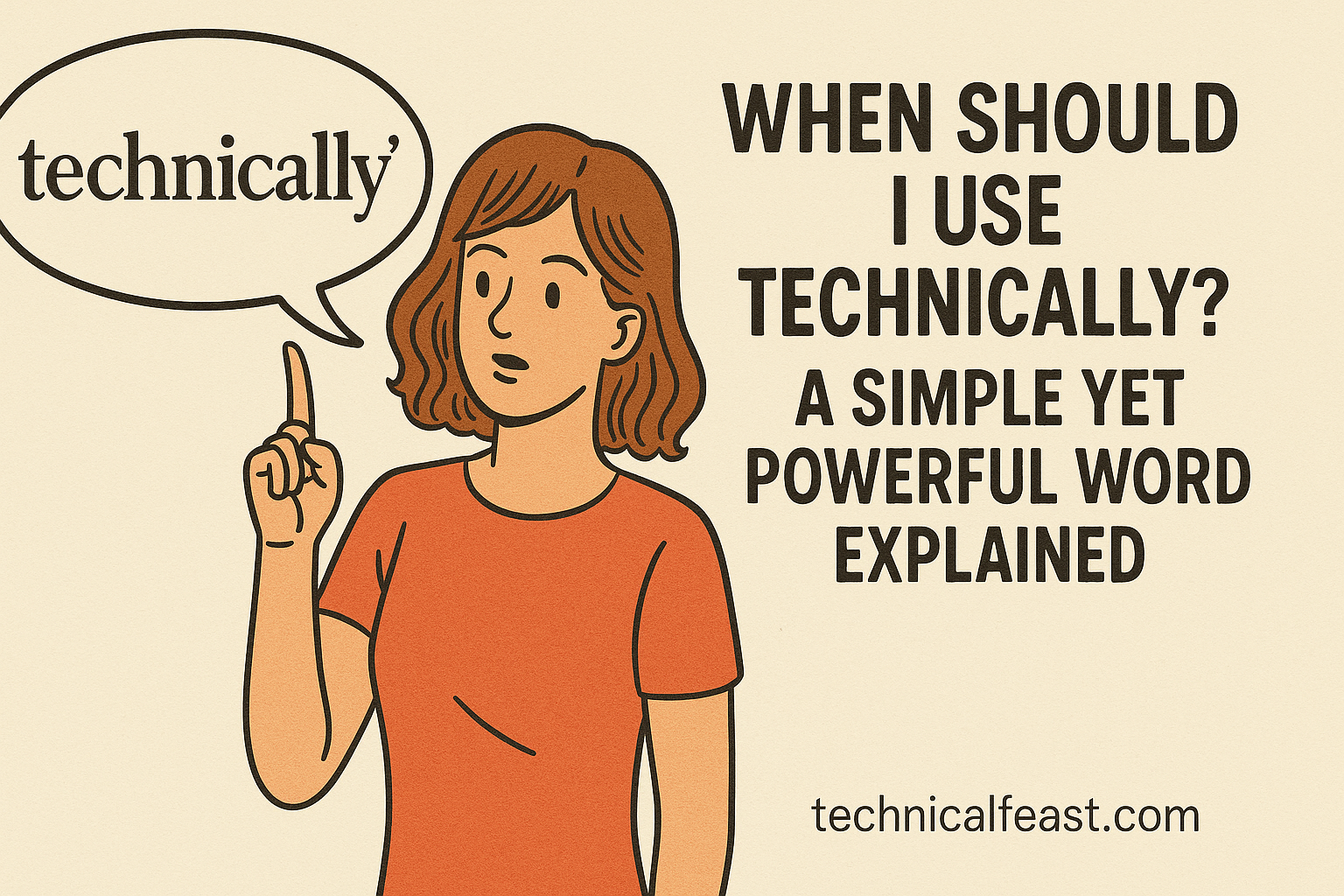Table of Contents
Words are funny little things. Some are clear and blunt, like “stop” or “run.” Others carry nuance and layers—technically is one of them. Ever heard someone say, “Technically, you’re not wrong,” and wondered what that actually meant? You’re not alone.
If you’ve ever asked yourself, “when should I use technically”, then this is your deep-dive guide to mastering it. From sounding smart in a debate to clarifying the fine print, we’ll break down when, how, and why to use “technically” in real life—with examples, expert insights, and stories.
What Does “Technically” Actually Mean?
At its core, “technically” means according to a strict interpretation of the facts or rules. But it’s not always so dry. This adverb is often used to highlight precision—or to politely disagree without being rude.
For instance:
- “Technically, Pluto is not a planet anymore.”
- “Technically, I was on time—I arrived at 9:59.”
So, when should I use technically?
Use it when you want to:
- Emphasize accuracy or rules
- Soften a contradiction or correction
- Point out small but important details
“Technically” in Everyday Conversation

You’ve probably heard “technically” tossed around during friendly arguments or debates. Let’s say your friend brags, “I ran a marathon!” and you reply, “Technically, it was a half-marathon.” See what happened there?
The word doesn’t just clarify; it gently brings in precision.
When should I use technically in casual speech?
- When you’re correcting someone politely
- When you want to look smart without being arrogant
- When teasing someone (but in a good way!)
Real-World Examples of Using “Technically”
Let’s look at how real people use this word in action:
- Office scenario:
- Boss: “You missed the meeting!”
- You: “Technically, I was there. I joined via Zoom—my mic just didn’t work.”
- Relationship scenario:
- Partner: “You didn’t do the dishes.”
- You: “Technically, I rinsed them and stacked them neatly. That’s half the job, right?”
- School scenario:
- Friend: “You copied my homework!”
- You: “Technically, I used it as a reference.”
These responses add a playful or slightly defensive tone—making conversations fun, nuanced, and sometimes even charming.
Using “Technically” in Professional Writing
If you’re writing an article, email, or report, “technically” can add clarity. It can help distinguish between what’s legally correct vs. what’s socially acceptable.
Example:
“Technically, the product meets safety standards, but we recommend additional testing.”
Here, “technically” lets the writer be honest while also nudging the reader to consider deeper context.
So, when should I use technically in writing?




Leave a Reply